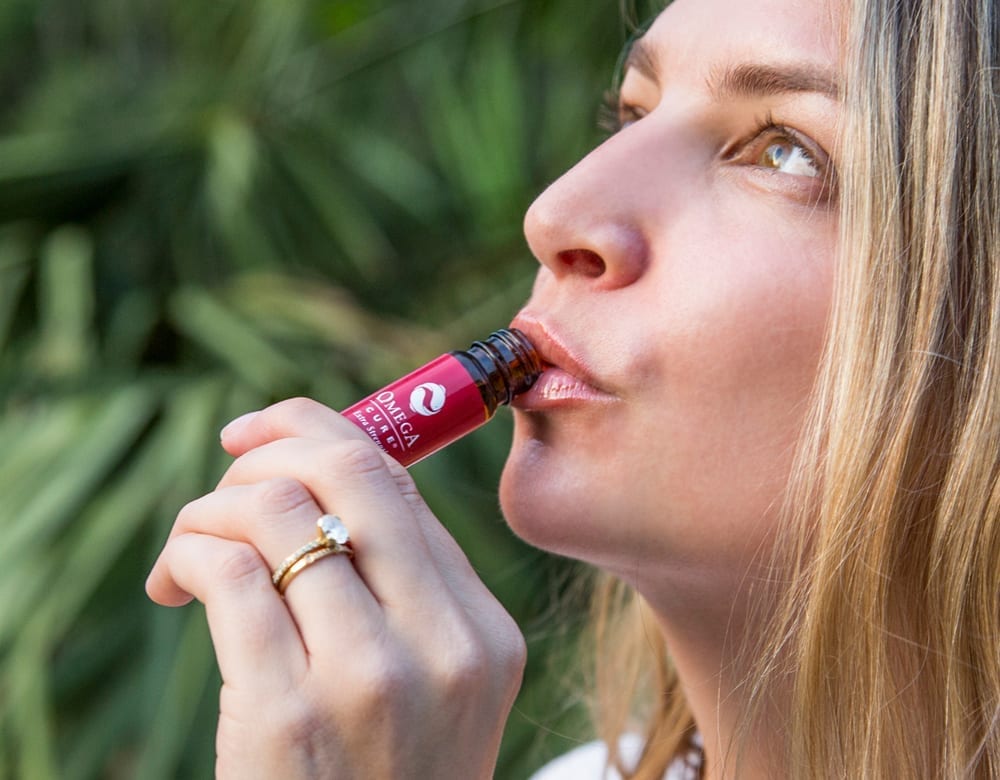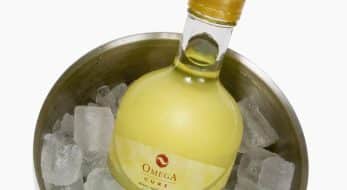Why the Source of Your Omega-3 Fatty Acids Matters
Today, the omega-3 industry is specializing more than ever. On the supermarket shelf, you don’t just find fish oil any longer, but a broad range of products under that main heading, including cod liver, salmon, and even krill oil.
While all of these sources contain EPA and DHA omega-3 fatty acids, the composition and nutritional profiles of the oils can be quite different. So how do you know which one is best for you?
Below, we’ll walk you through the finer points of omega-3 supplements, from how they are made to the doses necessary to deliver results.
Where Does Omega-3 Fish Oil Come From?
The majority of the world’s fish oil is a byproduct of the animal feed industry (1). Anchovy, herring, sardines, and mackerel are typically fished off the coast of South America or North Africa. While the fish meat gets ground into fishmeal (a popular source of feed for farmed fish and animals), the oil is multi-purposed. Some of the oil goes towards fish feed and pet food fortification, while the rest is refined and encapsulated for human consumption.
As the Norwegian newspaper Aftenposten reported, there’s often no quality control differentiation between the oil destined for people and animals prior to refining (2).
This origin story explains why regular fish oils typically taste and smell bad and often produce ‘fish oil burps’. Since the main goal is to produce fishmeal, the manufacturers have little interest in maintaining the quality of the fish oil. The oil is usually extracted last and often goes rancid within a short period of time. New techniques enable manufacturers to make the oil taste less offensive. However, a rancid fish oil can never be fully restored back to freshness.
“But My Omega-3 Supplement Says It’s From Norway!”
The vast majority of the world’s fish oil is sourced from South America and North Africa, that’s true. But if that oil is later transported to Norway for refinement, it’s often branded as “Norwegian”, regardless of origin. To learn more about the source of the oil in your omega-3 supplement, ask your manufacturer about where the fish were harvested.
Unfortunately, fish oils branded as Norwegian or Icelandic are often only refined there.
How Much Omega-3 Should I Take Per Day?
Fish oils derived from a blend of sardines, anchovies and other small oily fish naturally have the highest omega-3 content – up to 30% combined EPA/DHA (3). On the other hand, half of the fats are saturated, or the double of what is found in salmon or cod liver oil.
If the fish oil has not been concentrated, it typically takes between 8 to 10 large capsules daily to get the 3000 mg of EPA/DHA omega-3s recommended for anti-inflammatory benefits. For more information about calculating the correct omega-3 dose, read this blog.
FISH OIL PROS |
FISH OIL CONS |
|---|---|
|
Contains the highest percentage of EPA/DHA. |
Byproduct of the animal feed industry. |
| – |
Typically rancid. |
| – |
Half of the fats are saturated. |
What’s the Difference Between Fish Oil and Salmon Oil?
Salmon oil is becoming a more popular omega-3 source today, in large part because it sounds good. You visualize a beautiful salmon fillet, and imagine you are getting the same quality you would if you ate wild caught fish.
Salmon is an expensive fish, so it’s not the fillet that’s turned into oil, but the head, intestines, and fins. While these are perfectly fine parts to consume, the reality is quite different than the image of a fish fillet being reduced to a few fish oil capsules.
Many salmon oils also come from sea-farmed salmon, which is different nutrition-wise from wild-caught fish. The farmed salmon delivers the same nutrition that it consumes, and it can be difficult for consumers to discover what these farmed fish were fed, especially when the animal comes from a foreign country.
Is Sea-Farmed Salmon Better than Wild Salmon?
Sea-farmed salmon usually contains more pro-inflammatory omega-6s (4) and saturated fats than wild salmon (5). Depending on the type of salmon and the feed it received, the EPA/DHA content is relatively low, typically ranging from 8 to 16%. To get a clinical dose of 3000 mg EPA/DHA, you would need to consume around 20 capsules per day. The high cost of salmon omega-3s is also a major drawback, especially when compared to regular fish oil capsules.
On the plus side, sea-farmed salmon oil is often fresher than the wild version because the time it takes to harvest the fish and process the oil is shorter.
If you happen to find a wild salmon supplement, the fatty acid balance will resemble cod liver oil – but still contains less omega-3. That said, wild salmon oil has often gone rancid not only because of the long transportation time, but also because the fish is often stained with blood (which accelerates the oxidation process).
SALMON OIL PROS |
SALMON OIL CONS |
|---|---|
|
Often fresh because of short time from harvest to processing. |
Often made from sea farmed salmon, potentially impacting nutritional value. |
|
Less saturated fats than regular fish oils. |
Low omega-3 levels compared to other sources. |
|
– |
More expensive per EPA/DHA dose. |
Fish Oil vs. Cod Liver Oil
Cod liver oil is the original omega-3 source. Already in the 1700s, doctors were recommending cod liver oil for patients with joint pains, although its rich history dates back further (6). Considered a safe food product, cod liver oil is especially recommended for children and pregnant women in countries like Norway (7).
Part of the reason cod liver oil has been used for so many years is that the oil is easy to extract. The cod liver contains its omega-3-rich oil in small vacuoles. When the oil is extracted, there is limited amounts of rancidity-creating blood present. However, since cod liver oil was historically left in open vats and exposed to heat and oxygen, the poor taste became notorious and limited its popularity.
With modern technology and increased focus on freshness, cod liver oil has come a long way. For instance, Omega Cure® is tasteless and can even be used in chocolates and cookies.
Not All Cod Liver Oils Are Made Equal
While Omega Cure is a fresh, full-spectrum cod liver oil, store-bought cod liver oils are typically highly refined and often rancid. To learn more about how to find a fresh omega-3 product, read Making Sense of Fish Oil Oxidation Values.
Nutritional Benefits of Cod Liver Oil
Other than breast milk, cod liver oil is the only omega-3 source that also contains significant amounts of vitamin A and D — although the vitamin A and D levels in modern cod liver oils is typically significantly reduced due to the necessary purification of the oil.*
As for the omega-3s, it typically contains around 20% EPA/DHA, and has only half the amount of saturated fats of regular fish oils. To get a clinical dose of 3000 mg EPA/DHA, you would need to consume one tablespoon (15 ml) of oil or 15 capsules.
COD LIVER OIL PROS |
COD LIVER OIL CONS |
|---|---|
|
Long history of medicinal use & safety. |
If not manufactured correctly, vitamin A content may exceed dietary recommendations. |
|
Can be a good source of vitamin A, D.* |
– |
|
Less saturated fats than regular fish oils. |
– |
|
Often comes in liquid form, making it easier to get an effective dose. |
– |
Krill Oil vs. Fish Oil
Krill oil is one of the newest types of omega-3 sources. While fish oil has been studied extensively by universities and international research centers for the last 40 years, researchers did not start collecting data on the benefits of krill oil until the 2000s. What’s more, many of the studies were released by the krill oil manufacturers themselves, raising questions about potential bias.
What Is Krill Oil?
Krill are small, shrimp-like creatures that are a favorite food of whales, dolphins, and penguins. Like most fish oils on the market, krill oil is a byproduct from the animal feed industry, where the main goal is to produce feed for farmed fish and animals. Krill is also a type of crustacean, and even the smallest amount can cause severe allergic reactions in people with shellfish allergies.
Compared to the previously-mentioned fish oil sources, krill oil is harder to extract. Manufacturers typically use solvents to extract the oil. In some cases, the use of these chemicals can have serious consequences. In 2012, for instance, chemicals caused a deadly explosion at one krill oil facility (8).
Does Krill Oil Contain Omega-3?
Compared to fish oil, krill oil contains less omega-3s — somewhere between 15 to 25% EPA/DHA, depending on the product.
Krill oil has become popular because many brands claim you only need one small capsule a day. If you read the krill oil manufacturers’ studies, however, the researchers used four capsules daily to document any meaningful increase of omega-3 in the body (9). If you also look closely at the amount of EPA/DHA per capsule in most brands, it typically takes more than 20 capsules to reach a clinical dose of 3000 mg EPA/DHA.
Unlike fish oil, krill contains powerful antioxidants called phospholipids. Manufacturers claim that EPA and DHA are attached to these phospholipids, allowing for better absorption. To date, we have been unable to find any independent reports that substantiate the claims that phospholipids make a difference in terms of bioavailability, especially compared to fresh omega-3 fish oil.
Is Krill Oil As Good As Fish Oil?
Krill oil lacks the volume of independent scientific research that cod liver oil and fish oil have received. In addition to the aforementioned phospholipids, manufacturers’ claims that the astaxanthin antioxidant provides additional benefits have not been proven (10, 11).
Krill oil manufacturers also struggle with rancidity issues. With a cost of 5-10 times more per omega-3 dose than regular fish oil, you’ve got to wonder if krill oil is worth it, especially until researchers learn more about its efficacy and safety.
KRILL OIL PROS |
KRILL OIL CONS |
|---|---|
|
Claims of better bioavailability, but the jury is still out on this question. |
Expensive compared to other omega-3 products. |
|
– |
Solvents are used to extract the omega-3s, raising safety questions. |
|
– |
Not enough independent studies to support manufacturers’ claims of efficacy at recommended doses. |
What’s the Best Fish for Omega-3 Fatty Acids?
Taking a clinical EPA/DHA dose of any of these omega-3 oils should increase omega-3 index levels, lower triglyceride levels in the blood, and potentially deliver other positive health benefits as well. However, the manufacturing methods, the freshness factor, and the nutritional profiles of the oil will also impact clinical effects.
As you go forth looking at different omega-3 supplements, consider the source of the oil. Next, read the supplement label to determine the omega-3 daily dose you’ll need to consume, and investigate how fresh the oil is.
Finally, if you haven’t already, try Omega Cure. With the lowest oxidation levels on the market, it is the freshest omega-3 oil available. See the difference for yourself here!
An Effective Omega-3 Dose, Made Simple
Experience the Omega3 Innovations difference for yourself with the most effective fish oil supplement on the market.
Buy Now
References:
1. Halvorsen, Johannessen, Ida and Randi. Vi skal jo selge et produkt’: Oljen er produsert i anlegg som lager dyrefor – i Sør-Amerika.” Aftenposten. May 20, 2008.
2. Halvorsen, Johannessen, Ida and Randi. “Nordmenn kjøpte overpriset fiskeolje fra Sør-America for 285 millioner kroner i fjor.” Aftenposten. May 15, 2008.
3. Omega-3 Fatty Acid, Fish Oil, DHA (docosahexaenoic acid), EPA (eicosapentaenoic acid). WorldHealth.Net. American Academy of Anti-Aging Medicine. December 30, 2005.
4. Hamilton et al. Lipid composition and contaminants in farmed and wild salmon. Environmental Science and Technology. 2005 Nov 15; 39(22):8622-9.
5. Kirkpatrick, Kristin. Fish Faceoff: Wild Salmon vs. Farmed Salmon. Health Essentials. Cleveland Clinic. March 3, 2014.
6. Guy, Ruth. The History of Cod Liver Oil as a Remedy. The American Journal of Diseases of Children. 1923; 26(2):112-116. doi:10.1001/archpedi.1923.04120140011002.
7. Kosthold for gravide. Helsedirektoratet.no. November 1, 2015.
8. Neptune at fault in deadly plant explosion, CSST rules. CBC News. May 8, 2014.
9. Burri, Lena. Optimizing the Omega-3 Index with Krill Oil. Superba Krill. Aker BioMarine.
10. Daniells, Stephen. Krill and fish oil supplements equally effetive at boosting omega-3 levels, says DSM study. NutraIngredients-USA. September 10, 2015.
11. Salem, Norman and Kuratko, Connye. A reexamination of krill oil bioavailability studies. Lipids in Health and Disease 2014; 13:137. DOI: 10.1186/1476-511X-13-137.
Recent Posts
-
Dose, Joint Health, Omega-3
Omega-3 & Pain Relief: Finding the Best Strategy
Are you one among the 1 in 5 Americans grappling with chronic pain, as reported by the CDC [1]? If the thought of traditional pain medications and their potential side...3 months ago -
Eye Health, Omega-3
The Startling Link Between Skin Care and Eye Health
Dry eye complaints are on the rise worldwide. Many risk factors – including aging and increased computer use – help explain the increase. But there's another driver few people know...5 months ago -
Heart Health
Does Taking Fish Oil Lower Cholesterol?
Many people believe that incorporating omega-3s into their diet will solve their cholesterol woes. But the truth is much more nuanced; it's not as simple as taking a daily fish...1 year ago -
Immune Health, Sleep
Melatonin & COVID-19: Can This ‘Sleep Hormone’ Help?
It started with a runny nose and a slight cough. But when his 72-year-old wife tested positive for COVID-19, he got concerned. “Is there any research suggesting the supplements we...2 years ago -
Full-Spectrum Fish Oil, Omega-3
Is It Good to Store Fish Oil in the Freezer?
Fish oil is a great source of the omega-3 fatty acids we all need for good health. It’s also highly perishable. Consuming rancid fish oil can have negative health implications....2 years ago -
Omega-3
Our Favorite Omega-3 Fish Oil Benefits
Omega-3 fish oil certainly has a reputation for delivering a plethora of incredible benefits. And it’s true! Omega-3 fatty acids have been studied for a broad range of health conditions....2 years ago











Comments (24)
My last Bone Density test (May 2015) was slightly below normal. I was asked to stop my cod liver oil. Could you please tell me why???
Many years ago, there were some speculation that high vitamin A levels could lead to an increased risk of developing osteoporosis. At that time, cod liver oil was not purified and therefore contained lots of vitamin A.
Recent research has shown that this link is unsubstantiated, and that cod liver oil may actually help preserve the bone structures, especially when combined with exercise. In addition, one tablespoon of Omega Cure only contains about 30% of the daily recommended value of vitamin A.
I would discuss this topic further with your health care provider. If you would like me to send you more research articles connected to this topic, however, let me know.
Hi–
I have read (if I understand the study correctly!) that it is “oxidized” fish oil fats which have an anti-inflammatory effect. The study said “omega-3 fatty acids, such as EPA, are highly poly-unsaturated and readily undergo auto-oxidation”. It sounds like cod liver oil, with its higher level of polyunsaturated fats that you talk about in the above article, would thus have the anti-inflammatory effect–have I got that right? I am not sure whether this particular anti-inflammatory effect would be applicable to my type-2 diabetes.
Thanks for your thoughtful website articles!
I’m happy to hear you appreciate the articles, Holly.
To answer your question, any omega-3 oil needs to be non-oxidized to deliver best results. This is because the omega-3 molecules are likely involved in protecting the cholesterol in the body from oxidation. To quote from another article I wrote, “By being in position to be oxidized first, the omega-3s let the cholesterol molecules remain in their pure, unadulterated state — thus preventing the buildup of plaque in the arteries. It’s important to note, however: If the omega-3 molecules are already oxidized and rancid, they are not be able to serve this function.”
If you want to read more about the omega-3 molecules’ role in the cell and how they manage the body’s inflammation response, I’d recommend this article: “What Is Omega-3, and Why Is It Important for Your Health.”
In terms of benefits for Type II diabetes, omega-3 is instrumental in lowering triglyceride levels. Studies from institutions like the University of Michigan reveal that having elevated triglyceride levels is one of the most important factors in predicting nerve fiber loss in diabetic patients.
I have been taking Omega Cure for several years but wonder if it is tested for Mercury and other pollutants?
Absolutely, Omega Cure is both purified and tested for mercury and other pollutants. We cover this topic more in-depth on the About Our Oil page in the “Excellent Purity Standards” section: https://www.omega3innovations.com/about-our-oil
If you have more questions about this important subject, please don’t hesitate to let us know.
Does this product increase prostrate cancer developing? Thanks,
Hi Gary. Omega Cure should not increase the risk of developing prostate cancer. It is a GRAS product, meaning it is Generally Regarded as Safe by the FDA.
We do understand your concern, however, given the much-publicized study from 2013 that suggested fish oil could be linked with an increased risk of developing prostate cancer. What you should know is that within the scientific community, that study was heavily criticized for its hastily drawn conclusions and poorly designed research protocol (The same study had, amongst other strange conclusions, also found that smokers had a lower risk of developing prostate cancer than non-smokers).
If you’re interested in more information, we have written about omega-3 and prostate cancer in these two articles:
Rancidity: The Link Between Fish Oil and Prostate Cancer?
The Omega-3 and Prostate Cancer Resource Guide
Also, you may be happy to know, a new research study from 2015 has shown that increasing one’s intake of omega-3 may in fact help inhibit the growth and spread of prostate cancer cells. Take a look here:
http://www.nutraingredients.com/Research/Omega-3-may-help-fight-prostate-cancer
We hope this helps answer your question. Let us know if you have others.
I am interested in the comparison of Flaxseed Oil to other oils? I have been using Barlean’s Flax Oil , organic pure and unfiltered, freshly cold pressed. It does not contain Vitamin A or D.
Hi Zona,
That’s a good question. The reason we didn’t include flaxseed oil in this discussion is that it does not contain the same type of omega-3 you get in the marine-sourced oils discussed above. When you get your omega-3s from flaxseed or other plant sources like walnuts and chia seeds, it’s important to know that these plant sources only contain ALA omega-3, which has significant limitations.
To quote from another one or our blogs, 12 Myths about Omega-3 Fish Oil:
“In order for the ALA molecules to be effective in the fight against inflammation, they have to be elongated to EPA and DHA. This conversion step is more difficult and limited than most people realize. For example, you’d need to drink about a cup of flaxseed oil to get one teaspoon worth of EPA. This is why eating fatty fish or taking cod liver oil is more effective than flaxseed in putting a damper on inflammation and why the vast majority of omega-3 research has been conducted on fatty fish and fish oil.”
You might also want to read another blog by Dr. Chalmers, which discusses how ALA compares to EPA, DHA and other types of omega-3 that you get in fish oils:
https://www.omega3innovations.com/blog/epa-dha-ala-how-to-decipher-the-omega-3-alphabet-soup/
Is it better to have Cod Fish Oil Carlston brand or Omega coming from anchovies and sardines? which of these two is better?
Thanks for your reply,
Nelly
Hello Nelly,
Of course we recommend our Omega Cure cod liver oil to you as the best omega-3 supplement. Besides being exceptionally fresh, it is also a full-spectrum oil, meaning it has not been skimmed in the same way as most other cod liver oils and fish oils. You can read more about how Omega Cure compares here.
To answer your question, however, we suggest you evaluate the best brand based on these two factors:
1) Is the oil fresh? Taste and smell your chosen brands. Open up the capsules, if necessary. If the oil has a strong fishy smell or flavor, it is rancid.
2) Am I able to get an effective daily dose? If you are going to get the benefits of omega-3, you need to take an effective daily dose, meaning for most adults between 2000 – 3000 mg of EPA/DHA omega-3 daily. Usually, a liquid supplement, as opposed to a capsule product, will make it easier to swallow that dose every day.
Best of luck, and if you have more questions, don’t hesitate to let us know.
Hi – I’ve read in a Duke research study by Dr. Stephen Ilardi that the optimal dosage for depression is 1000mg of EPA and 500mg DHA and its multiples (2000mg EPA to 1000mg DHA and so on). I’ve noticed that your products tend to contain a 1:1 ratio. What is your opinion on the dosage for this health issue (and other mental health issues)?
It’s a good question, Jay. Here are my thoughts;
While current research indicates that EPA seems to be more effective than DHA for helping patients with depression, DHA seems to play a bigger role for patients with neurodegenerative conditions, like Alzheimer’s disease. Studies using a combination of EPA and DHA also show statistically-significant improvements in symptoms for patients with bipolar depression, whereas trials using just one or the other fatty acid do not appear to deliver the same benefits.
The takeaway message is that both EPA and DHA (as well as other omega-3 members, like DPA) are important for the brain. Making a call as to what exact EPA/DHA ratio is optimal for depression seems premature, given the amount of research to date. Therefore, with our products, we focus on helping our customers get enough total omega-3, since that is one of the biggest reasons why people don’t experience any benefits when taking an omega-3 supplement. This viewpoint is supported by a recent 7-year follow-up study demonstrating that the omega-6 to omega-3 ratio is likely more important than the individual fatty acid ratio.
The daily dose necessary for normalizing the omega-6 to omega-3 ratio seems to be between 2700 and 5000 mg EPA/DHA for most chronic disorders, although an individual’s optimal dosage is also influenced by diet, clinical condition, genetics, etc. If you get enough omega-3 (EPA/DHA and the rest), your body will be able to make use of the fatty acids it needs.
Besides dose, it is also important to consider the freshness level of your omega-3 supplement. If your oil becomes oxidized, the EPA and DHA molecules will not be effective. You can read more about that here:
https://omega3innovations.com/blog/rancid-fish-oil-is-likely-a-health-hazard-new-studies-show/
Thank you for your fast reply Dr. Martinsen,
That was an interesting study that you linked me. 7 years is a long time and a lot of data. I’ve read that in some trials these high mega-doses have been used for mental illness. However, I’m reluctant to take such a high dose, as 1600mg of EPA seemed to make me feel worse. I am willing to try your product at your recommended dose for some time before passing a judgement on the effectiveness for depression. That is the next best option that I see. I am currently taking this fish oil: https://www.vitacost.com/vitacost-synergy-mega-efa-1200-mg-omega-3-epa-dha-per-serving-natural-strawberry?q=synergy+mega+ef&ta=synergy+mega+ef
I don’t want to ramble – I will go ahead and put your suggestion to the test. Thank you again for your advice.
Jay
It is true, Jay, that taking a high dose of omega-3 can make some people feel unwell. This is most often the case when a person is consuming a rancid, oxidized omega-3 oil (which, unfortunately, includes the majority of the omega-3 products on the market).
I’ve discussed some of these issues in a blog focused on cancer patients, who are often recommended very high doses of EPA/DHA:
https://omega3innovations.com/blog/omega-cure-with-melatonin-increasing-efficacy-of-cancer-treatment/
Whether you decide to increase your daily dose or not, make sure that the product you take is fresh and non-oxidized, like Omega Cure. Besides getting an effective dose, the freshness of the oil will be crucial for you to experience health benefits and feel comfortable. Also remember that it can take 6 – 10 weeks to feel the full effects.
Please tell me omega3 supplement from salmon fish is better or omega3 from anchovy,sardine and mackerel?
Hi Sona, You really have to evaluate the individual products to assess whether they are fresh and how many servings you would need to take in order to achieve an effective anti-inflammatory dose.
Of course, we would recommend that you consider our Omega Cure cod liver oil, which has the best freshness levels of any omega-3 product on the market. It also has no fishy taste or smell, so it’s painless to swallow.
I stay in India and want to know ig you have a distributor in india. Secondly in case i buy the fish oil in USA , can i bring to india. Pl reply.
Thanks
Hi Chalak, We don’t have a distributor in India. But if you buy our products in the USA, you should be able to bring them back in your checked luggage for personal use.